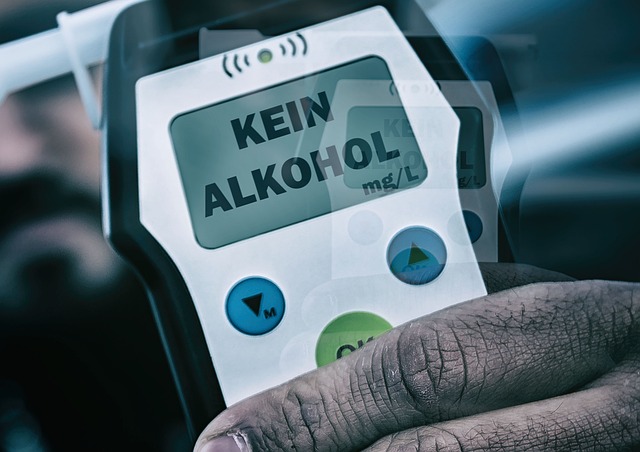The Immigration Consequences of DUI Convictions are severe for high-risk reoffenders and non-citizens, potentially leading to deportation and permanent exclusion. Understanding these consequences is crucial for at-risk populations to prevent repeat offenses and break the cycle of incarceration. Comprehensive interventions focusing on education, mental health support, and legal aid are essential to reduce recidivism and protect individuals from immigration repercussions.
In the intricate web of criminal justice, understanding high-risk reoffenders and their unique challenges is paramount. This article delves into the multifaceted issue of DUI convictions, exploring their profound impact on individuals and immigration consequences. We dissect reoffending patterns to identify risk factors for recidivism, offering insights into breaking the cycle through effective rehabilitation strategies. Furthermore, we examine legal complexities abroad and emphasize the crucial role of support systems in transforming lives, especially for high-risk offenders facing immigration challenges stemming from DUI convictions.
- Understanding DUI Convictions: A Comprehensive Look
- Immigration Laws: DUI and Its Impact on Foreigners
- Reoffending Patterns: Identifying Risks for Recidivism
- Breaking the Cycle: Strategies for Rehabilitation
- Legal Consequences: Facing DUI Charges Abroad
- Support Systems: Helping High-Risk Offenders Turn Their Lives Around
Understanding DUI Convictions: A Comprehensive Look

DUI (Driving Under the Influence) convictions carry significant consequences, especially for high-risk reoffenders who may face severe penalties that could impact their future. In terms of immigration, DUI charges can have dire repercussions, particularly for non-citizens and those with legal residency status. The Immigration Consequences of DUI Convictions are multifaceted, often leading to deportation or removal proceedings. Repeated offenses can result in permanent exclusion from the country, barring individuals from returning home.
This comprehensive look at DUI convictions highlights the importance of education and awareness among high-risk populations. Understanding the potential immigration implications is crucial as it may affect not only an individual’s freedom but also their ability to remain in their desired location. With such severe outcomes, it underscores the need for proactive measures to prevent DUI offenses and offer support to those struggling with substance abuse issues.
Immigration Laws: DUI and Its Impact on Foreigners

The Immigration Consequences of DUI convictions can be severe for foreigners, as immigration laws are stringent regarding driving under the influence. A DUI arrest can lead to deportation proceedings, even for those with temporary or permanent residency status. This is because immigration authorities view DUI as a serious offense that reflects poorly on an individual’s character and ability to adhere to legal obligations.
The impact of a DUI conviction extends beyond criminal charges. It can result in loss of driving privileges, fines, community service, and participation in rehabilitation programs. Moreover, it creates a black mark in one’s record, which can affect future job applications, travel plans, and overall ability to remain in the country. For non-citizens, these consequences can be particularly detrimental, potentially leading to removal from the United States.
Reoffending Patterns: Identifying Risks for Recidivism

Reoffending patterns are a critical aspect of understanding recidivism, especially for high-risk individuals facing immigration consequences of DUI convictions. Studies show that certain factors significantly increase the likelihood of reoffending, with DUI offenders having higher rates of repeat offenses compared to other criminal types. Key risks for recidivism include prior criminal history, substance abuse issues, and a lack of access to adequate rehabilitation programs during their initial incarceration.
Identifying these risks is crucial in developing effective strategies to break the cycle of reoffending. By recognizing patterns such as repeated DUI arrests or failed rehabilitation attempts, interventions can be tailored to address the specific needs of at-risk individuals. This proactive approach, focused on early identification and targeted support, has been shown to reduce recidivism rates, ultimately helping high-risk offenders avoid immigration consequences associated with DUI convictions.
Breaking the Cycle: Strategies for Rehabilitation

Breaking the cycle of reoffending among high-risk individuals is a complex challenge, but with tailored strategies, it’s achievable. Rehabilitation should focus on addressing the root causes, such as underlying mental health issues or lack of social support, often linked to criminal behavior. One key area to target is education and skill development, ensuring these individuals gain employable skills to break free from environments that encourage crime.
Additionally, providing access to evidence-based therapy and counseling can help process trauma and reduce the risk of future offenses. Strategies should also consider the unique challenges faced by high-risk reoffenders, such as those with immigration consequences stemming from DUI convictions. Effective interventions include case management, intensive supervision, and community-based programs that foster a supportive environment, ultimately lowering recidivism rates.
Legal Consequences: Facing DUI Charges Abroad

When individuals with a history of high-risk reoffending find themselves facing DUI charges abroad, the legal and immigration consequences can be severe. Each country has its own strict laws regarding driving under the influence, and foreign DUI convictions often carry significant penalties, including jail time, hefty fines, and license suspension or revocation.
For immigrants or non-citizens, these repercussions can have detrimental immigration consequences. A DUI conviction may lead to deportation, denial of reentry, or even a ban on future travel. The Immigration Consequences of DUI Convictions can be complex, with varying rules across different jurisdictions. Individuals must understand their rights and seek legal counsel to navigate these challenging situations effectively.
Support Systems: Helping High-Risk Offenders Turn Their Lives Around

For high-risk offenders, breaking the cycle of reoffending requires a robust support system. This includes access to mental health services, substance abuse treatment, and career counseling, as many offenders struggle with underlying issues that contribute to their criminal behavior. Community-based organizations, social workers, and peer support groups play pivotal roles in providing these services, helping individuals develop coping strategies and build positive identities.
Additionally, legal assistance is crucial, especially when addressing the Immigration Consequences of DUI convictions. Navigating complex immigration laws can be daunting for offenders with limited resources. Legal aid organizations offer guidance on potential deportation, visas, and citizenship, empowering high-risk individuals to make informed decisions and take responsibility for their lives while ensuring they do not face further barriers upon reintegration into society.
The complex issue of high-risk reoffenders, particularly those with DUI convictions, demands a multi-faceted approach. By understanding the nuances of DUI laws, recognizing reoffending patterns, and implementing effective rehabilitation strategies, we can break the cycle of recidivism. Additionally, addressing the immigration consequences of DUI convictions is vital for fostering support systems that help high-risk offenders turn their lives around. Through comprehensive understanding and targeted interventions, we can create a safer society while offering second chances to those seeking redemption.






